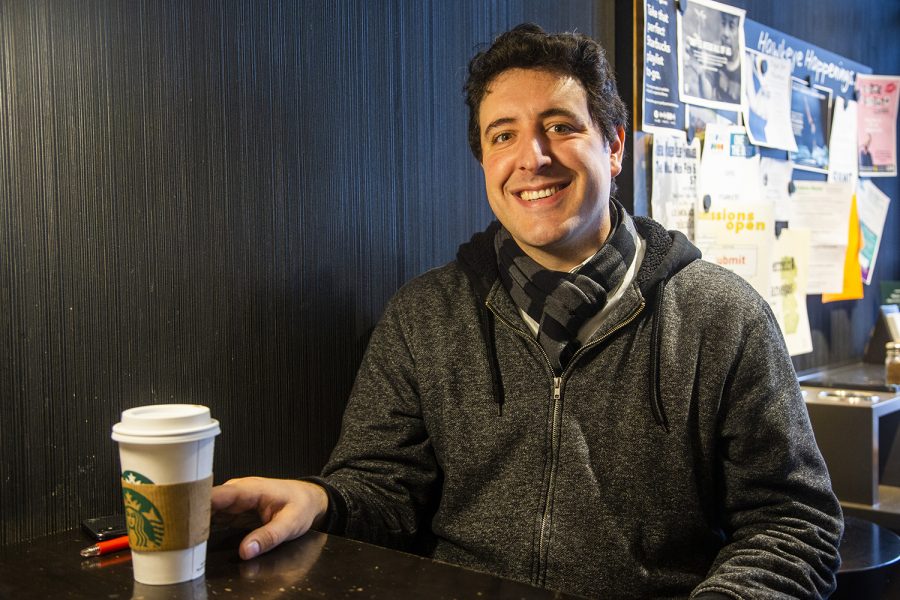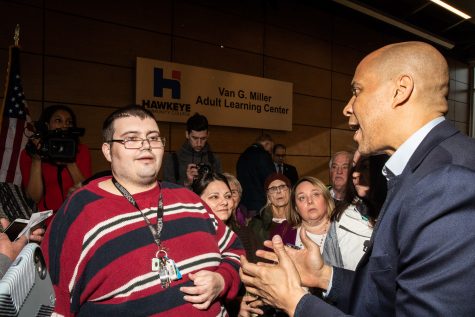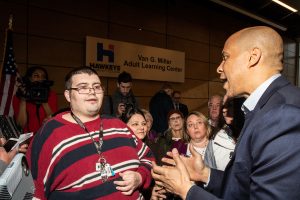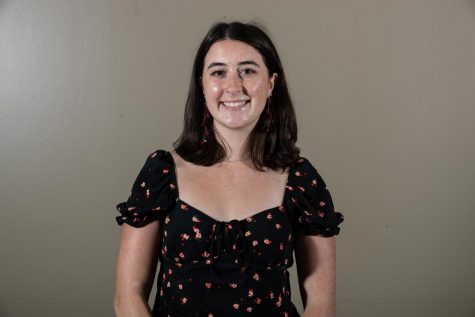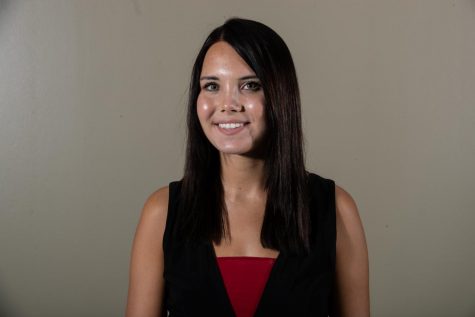UI law students learn the ropes of medicine at winter seminar
Professor Kurtz and the College of Law offers a winter seminar that focuses on the intersection of healthcare and law. The program gives 10 UI law students the opportunity to engage in lectures and hospital rounds that expose students to law’s role in medicine.
UI law student Jason Smathers poses for a portrait on Monday, February 4, 2019. Smathers was a participant is Professor Shelly Kurtz’s seminar that showed how legal issues intersect with the delivery of health care.
February 10, 2019
Students explored the intersections of law and medicine in the annual University of Iowa College of Law winter seminar, which joins the study of law with the medical efforts of the UI Hospitals & Clinics.
UI law Professor Sheldon Kurtz has led the seminar since 1992. In that time, Kurtz and the law school have given 10 law students the opportunity to understand the importance of legal matters in the practice of medicine.
“The case-law method of study … makes things much too black and white for what is really going on in the medical world,” Kurtz said. “And so I want students to be able to see the little bit of what I call the complexity of life.”
Kurtz found the inspiration for the seminar after spending two weeks at the Cleveland Marshall Law School’s Cleveland Clinic in the early ’90s. At the clinic, he was excited about what he had learned about health law and wanted to share it with UI law students.
The seminar takes place the first week of January and offers a “truncated” version of what Kurtz learned at the Cleveland Clinic. A large part of the seminar focuses on what kind of legal problems arise in the practice of medicine that are not involved with malpractice, he said, such as informed consent, end of life care, and the financing of health care.
UI law student Jason Smathers, who participated in this year’s seminar, said the seminar consists of tours of different units of the hospital, didactic sessions, and rounds of the hospital in a specific area of study.
“Nothing else in law school was close to this seminar in terms of the impact it has because … this ruined me emotionally for a week,” he said.
RELATED: College of Law offers remote semester in D.C.
Student rounds consist of two law students following physicians from the Departments of Neurology, Medical Psychiatry, General Psychiatry, Neonatal Unit, and Palliative Care.
“You’re actually going to see this play itself out, day in, day out, and all the patients and … your job is to ask questions to get to know how they do their job,” Smathers said.
Associate Professor of Law and member of the UI Genetics Cluster Anya Prince, who shadows Kurtz in the seminar, will take over his role and continue the program once he retires in the next two years.
“It’s really fun to watch the interactions with the law students and residents or med students who are rounding as well, because then they get a similar level trainee,” she said.
Clinical Professor of pathology Marcus Nashelsky, an autopsy and forensic pathologist and one of the many professors who took part in the seminar, said he enjoyed showing students how his area of study interacts with the law.
“This seminar provides an opportunity to describe and explain my medical subspecialty in a casual setting outside of a large classroom or a courthouse,” Nashelsky said.
Kurtz said the seminar involves around 45 people. He and his team begin planning the next year’s seminar as soon as the current one has finished.
The seminar helps understand the “complexity of life” and how important law is to health care and medicine, because it is the most regulated industry, he said.
“The good thing about law is that it’s designed, for the most part, to help people in their lives, not to hurt people in their lives,” he said.



